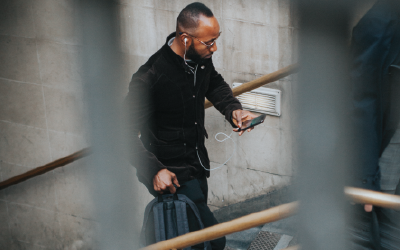FAQ: First Contact with the Mediator (does the partner who initiates mediation services gain any advantage?)
It’s very common for one of the divorcing partners to be more willing than the other partner to use divorce mediation rather than having two lawyers go to battle. There is often a fear that whoever calls the mediator first will have the advantage during mediation. This is not how mediation works!
No one should have the advantage.
The divorcing partners attend meditation together, and neither partner should have any side conversations with the mediator that would be meant to prevent the other partner from having access to the content of that conversation and then be prevented from commenting or disputing what has been communicated.
The mediator meets with both partners at the same time, and manages the flow of communication so that parties have equal opportunity to share and comment on the plans being made. If there is a need to have a partner communicate a piece of information to the mediator outside of session, such as the value of a vehicle or the name of a creditor, then that information can be communicated in a mutually agreeable method. My contract that I have clients sign outlines the code of behavior required for successful mediation and people start to violate those boundaries, then they can potentially lose their contract with me.
What happens during a first phone call?
When a prospective client calls me, they often have questions about how mediation works and if their circumstances are suitable for mediation. I prevent people from getting into any gory details about why they are getting divorced. Unless there is domestic violence, child abuse, or other similar circumstances happening, then usually mediation is a suitable option. I will only give basic information about how mediation works, and I will not address any issues that are specific to your case. If a person presses me for that sort of conversation, I will explain the boundaries. I also tell them that if their partner calls me, I will explain the exact same information. Although the partner who makes initial contact with me might initially feel a bit anxious and frustrated by not gaining any advantage, they end up feeling a sense of trust and confidence in my ability to maintain boundaries even from the very first phone call.
What happens if somone emails instead of calls?
If someone emails me with too much information that I would have normally prevented them from divulging during a phone call, then I will simply share the content of that email with their partner during the initial consulation. This way, both parties are aware of the past communication, the boundaries are addressed, and I explain how this information will be handled as we move forward. For example, if a partner speaks negatively of the other partner or expresses their ideal parenting time schedule, I will explain that this will not affect how I view the other partner or how we will arrive at parenting time schedules.
What if someone has a question between mediation sessions?
I make use of secure software that allows for group messaging so that we can communicate simple questions and answers about the tasks you have to complete between mediation sessions. I would never want your mediation session to be wasted because you were unable to prepare due to an unanswered question or bit of guidance. I am here to help and guide you, maintain proper boundaries for the benefit of your fair and equitable mediation process, and continually steer you toward success.
How do we get started with mediation?
Most people want to ask me a few questions before they actually come in for their first mediation session. I offer a $50 group video or phone consultation (for up to 30 minutes) so that both parties can ask me questions together and we can all make sure this is a good fit (for me, as well as for you). Please contact me, Diana Zilly, at 630.476.4676 or email dianazillyllc@gmail.com if you would like to have a consultation. I look forward to helping you!

